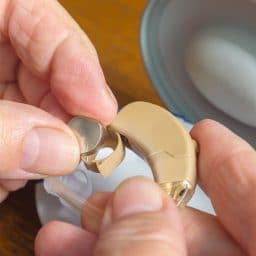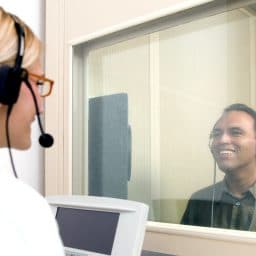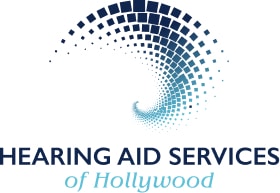Hearing Loss Prevention

Eating Habits and Hearing Loss Recent research has shown that nutrition can slow the loss of hearing due to aging. According to the American Journal of Clinical Nutrition, “If you eat two servings of (fresh) fish, you lower the risk of hearing loss by 42 percent if you’re 50 years old or older.” Eating fish…
Buying Batteries

Imagine this scenario: Mr. Watson arrives at our office with the complaint that there is something wrong with his new hearing aids. He claims that he is not hearing as well with the high-end digital instruments he purchased six months ago. We ask to examine them and notice that they have been well maintained. Jeff…
Traveling With Hearing Aids

The summer travel season has begun! This is a good time to review what individuals with hearing loss should know about current TSA screening procedures and tips for traveling with your hearing aids. Airport screening presents unique challenges for those with hearing loss due to the noise in the environment and the need to understand…
Hearing Aid Do’s and Don’ts

The Do’s and Don’ts of caring for your hearing aids. Do’s DO store your hearing aids in their case immediately upon removing them. DO keep them out of the reach of small children and pets. DO clean your hearing aids daily to remove wax and debris. DO place a storage box next to the phone if you typically remove…
Realistic Expectations

Together, you and your audiologist will determine the appropriate hearing aids for you based on your degree of hearing loss, lifestyle and budget. At the time of your fitting appointment, you should expect: A good and comfortable fit The hearing aids should feel as if you have next to nothing in your ears. There should…
Purchasing Hearing Instruments: Cost vs. Value

When purchasing hearing aids you are relying on an expert to use his skills and experience to adjust the product to perform for you. Purchasing Hearing Instruments: Cost vs. Value In today’s world, we are always happy when we can spend less. Nevertheless, when purchasing medical devices, such as hearing aids, you are not just…
Purchasing of Hearing Aids: What We Discourage

Fitting hearing aids is a process that requires a keen understanding of how each patient’s ears perceive sound. Audiologists have been trained through an intensive six-year curriculum to identify and provide remediation for hearing impairments. Please view our article about purchasing hearing aids in our newsletter here. Mail Order and Internet Hearing Aids People have become…
How to Purchase Hearing Instruments

7 Questions You Should Ask Hearing Professionals Before Making an Appointment Are you an audiologist? Audiologists hold advanced degrees from accredited universities and have special training in the identification, assessment and non-medical treatment of hearing disorders. They must complete a full-time internship, pass a demanding national examination and be licensed by the state. The only…
What Drugs Can Cause Hearing Loss?

According to the American Speech-Language-Hearing Association, there are currently more than 200 chemicals and medications that may result in hearing and balance disorders. Ototoxic is the term health professionals use for medications and supplements that produce hearing loss as a side effect. Some physician-prescribed medications can damage the delicate hair cells in the inner ear…
Hearing Loss and Listening Fatigue

The stresses of everyday life can test your endurance and patience. If, at the end of the day, you feel more exhausted than you think is appropriate, it might be time to schedule a recheck of your hearing. You may have listening fatigue, a condition caused by the increased effort you’re exerting to listen and…

